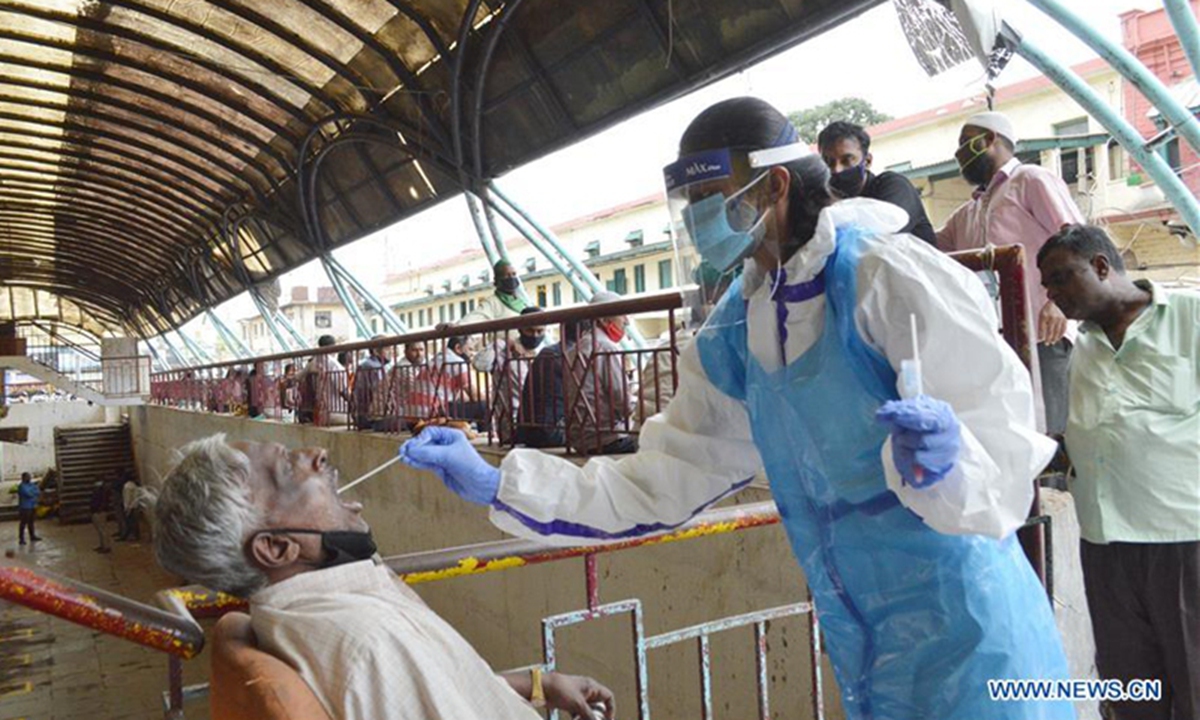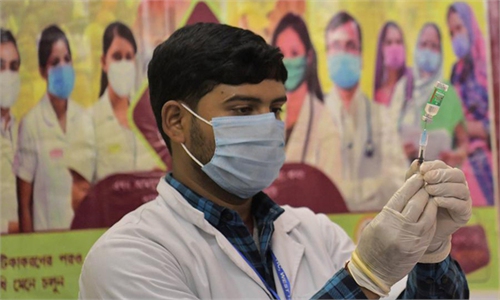
An Indian health worker takes swab tests of a man. Photo: Xinhua
While COVID-19 restrictions in India appear to be easing amid a lower rate of new cases in recent days, its hope of re-establishing travel connections with foreign countries may hinge on its ongoing effort in bringing the pandemic under control.New Delhi is in touch with Beijing regarding the latter's "suspension of visas", seeking China to allow Indians to travel to the country for work and education, the Times of India reported on Sunday. A spokesperson from India's Ministry of External Affairs recently told the media that "essential two-way travel should be facilitated, especially keeping in view the fact that Chinese nationals are able to travel to India."
According to the spokesperson, China has suspended visa issuance for Indians since November. Yet, information from the website of the Chinese Embassy in India showed that although the Visa Office of the Chinese Embassy was closed due to the pandemic, applicants can still apply for Chinese visas by submitting online forms starting from May 10.
While it is not clear what caused the misunderstanding about the so-called visa suspension, India's anxiety in seeking an early resumption of travel to China is evident.
As the second wave of coronavirus cases has devastated India since April, many countries and regions around the world have tightened restrictions on travel from India. Thus, re-establishing travel to foreign countries will mark a necessary step toward normalizing India's economic activity. Since China is a crucial trading partner to India, its desire to resume travel connection to China is understandable.
However, it is worth pointing out that the principle of reciprocity cannot be simply applied to travel resumption between countries in the post-pandemic era. It is not based on political reasons that some countries around the world have imposed on various COVID-19 restrictions on travel from India. The UK government added India to the "red list" travel ban in late April.
At present, the Civil Aviation Administration of China implemented circuit breaker measures on airlines in a bid to curb imported COVID-19 cases, and the rules are not directed at India specifically. But because of the severity of the outbreak in India, travel between the two countries has been halted from time to time.
India recorded 70,421 new cases on Sunday, the lowest since the end of March, according to The Indian Express, but the daily infection rate is still relatively high. In this sense, the key for India to resume foreign travel is to be able to bring its epidemic under control.
Fundamentally speaking, despite political frictions between China and India, it has not affected their economic and trade ties. Trade between China and India soared 70.1 percent in US dollar terms in the first five months of this year to $48.16 billion. As long as the Indian government does what it should do well, China-India economic activities can be carried out in a more favorable environment.


